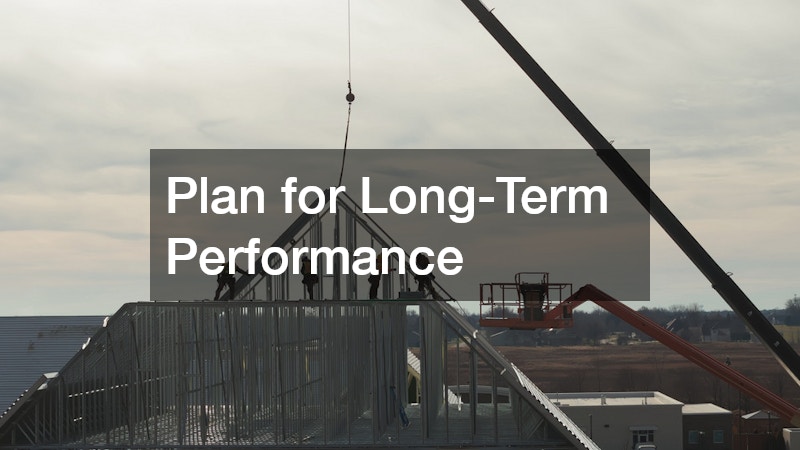
Commercial roofing plays a crucial role in safeguarding business properties from the elements, ensuring structural integrity, and enhancing the overall appearance of a building. Unlike residential roofing, commercial roofing systems are often larger, more complex, and require specialized knowledge for installation, maintenance, and repair. Whether you own an office, warehouse, retail space, or industrial facility, understanding the fundamentals of commercial roofing can help you make informed decisions and extend the lifespan of your property.
Understand Different Types of Commercial Roofing
One of the first steps in choosing a commercial roofing solution is understanding the variety of materials and systems available. Each type has unique advantages depending on the building’s design, location, and purpose. Common commercial roofing systems include:
-
Built-Up Roofing (BUR): Known for its durability, BUR involves multiple layers of roofing felt and asphalt, offering excellent protection against harsh weather conditions.
-
Modified Bitumen Roofing: This system uses reinforced sheets with added polymer for flexibility and strength, making it suitable for buildings with high foot traffic on the roof.
-
Single-Ply Membranes: Including TPO, PVC, and EPDM, single-ply membranes are lightweight, energy-efficient, and relatively easy to install. They are popular in commercial spaces due to their reflective properties and long lifespan.
-
Metal Roofing: Metal panels are durable, fire-resistant, and provide superior protection in extreme climates. They are also known for their low maintenance requirements.
Choosing the right type of commercial roofing is essential for long-term performance. Factors like roof slope, climate, and building usage should guide your decision-making process.
Prioritize Regular Inspections and Maintenance
Commercial roofing systems are an investment that requires ongoing care. Routine inspections can help identify potential issues before they escalate into significant problems. Some key areas to monitor include:
-
Flashing and Seals: These prevent water infiltration around vents, skylights, and edges. Damaged flashing can lead to leaks and structural damage.
-
Roof Membrane or Surface: Look for cracks, blisters, or punctures that could compromise the integrity of the roofing system.
-
Drainage Systems: Proper drainage is essential to prevent standing water, which can accelerate deterioration and cause leaks.
By scheduling regular inspections and maintenance, businesses can extend the life of their commercial roofing while avoiding unexpected disruptions caused by roof damage.
Consider Energy Efficiency and Sustainability
Modern commercial roofing options often come with energy-efficient and environmentally friendly features. Reflective coatings, green roofs, and solar-ready installations can help reduce energy consumption and create a more sustainable building.
-
Reflective Coatings: These coatings reduce heat absorption, keeping indoor spaces cooler and lowering energy use for air conditioning systems.
-
Green Roofs: Incorporating vegetation not only provides insulation but also helps manage stormwater and improves urban air quality.
-
Solar Integration: Commercial roofs can be designed to accommodate solar panels, generating renewable energy and contributing to sustainability goals.
Investing in energy-efficient commercial roofing not only benefits the environment but also enhances the comfort and productivity of employees.
Work With Experienced Professionals
Installing or repairing commercial roofing requires specialized skills and equipment. Unlike residential projects, commercial roofing involves larger areas, heavier materials, and often more complex structural considerations. Hiring experienced roofing professionals ensures the job is completed safely, efficiently, and to the highest standards.
A qualified commercial roofing contractor can provide:
-
Accurate assessments of roof condition and material suitability.
-
Professional installation following industry best practices.
-
Preventive maintenance plans tailored to your building’s needs.
-
Expertise in addressing leaks, damage, or other roofing issues promptly.
Partnering with a trusted roofing company helps protect your investment, minimize downtime, and maintain a safe environment for employees and visitors.
Plan for Long-Term Performance
Commercial roofing is not just about immediate protection—it’s about long-term performance. Selecting durable materials, adhering to maintenance schedules, and addressing minor repairs early can significantly extend the roof’s lifespan. A well-maintained roof preserves the value of the building, supports energy efficiency, and prevents costly structural damage.
Additionally, understanding the life expectancy of different roofing materials can guide planning for future replacements or upgrades. Investing time and resources into proper care ensures your commercial roofing continues to meet the demands of your business for years to come.
Commercial roofing is an essential aspect of maintaining and protecting any business property. From selecting the right materials to implementing regular maintenance and energy-efficient solutions, a reliable roofing system supports structural integrity, safety, and sustainability. By working with experienced professionals and prioritizing long-term performance, business owners can ensure their commercial roofing remains a dependable asset for their building.
Whether you’re planning a new installation, upgrading an existing system, or seeking guidance on maintenance, understanding the importance of commercial roofing helps safeguard your investment and keep your business running smoothly.

